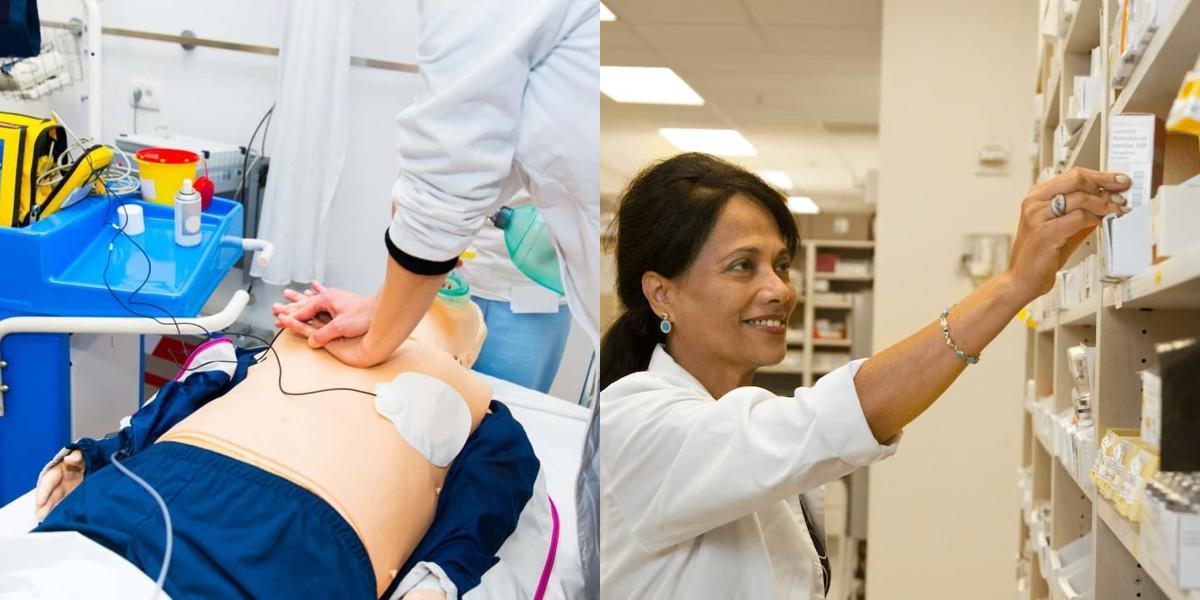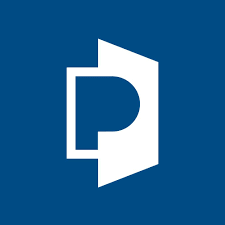ACLS vs Pharmacy Technician

Want personalized recommendations?
Let's match you to the right program

Key Points:
- ACLS providers manage critical medical emergencies, while Pharmacy Technicians assist pharmacists in preparing and dispensing medications.
- ACLS providers typically earn higher salaries than Pharmacy Technicians.
- ACLS training is typically done in person, while Pharmacy Technician training can be completed both online and in person.
- ACLS training is generally more expensive and takes less time than Pharmacy Technician training programs.
The medical field is vast and offers a wide range of career opportunities. Two popular options are ACLS and Pharmacy Technician. While both professions involve healthcare, they have different roles and responsibilities. Understanding the differences between ACLS and Pharmacy Technician can help you make an informed decision about which path is right for you.
Article continues after recommendations
Recommended for you
What is ACLS and Pharmacy Technician?
ACLS (Advanced Cardiovascular Life Support)
ACLS stands for Advanced Cardiovascular Life Support. It is a set of clinical interventions and protocols used by healthcare professionals to ensure the best possible outcomes for patients experiencing life-threatening cardiovascular emergencies. ACLS training equips healthcare providers with the knowledge and skills to respond to cardiac arrest, stroke, and other cardiovascular emergencies.
Pharmacy Technician
On the other hand, a Pharmacy Technician is a healthcare professional who works under the supervision of a licensed pharmacist. They assist in dispensing prescription medications, providing customer service, and performing administrative tasks in a pharmacy setting. Pharmacy Technicians play a crucial role in supporting pharmacists in delivering safe and effective healthcare services to patients.
ACLS certification, lasting a few days, focuses on emergency cardiac care, preparing healthcare professionals for critical situations. In contrast, becoming a Pharmacy Technician involves several months of training, leading to roles assisting pharmacists in dispensing medication.
Key Differences Between ACLS and Pharmacy Technician
ACLS vs Pharmacy Technician: Which Career is Right for You?
ACLS providers specialize in critical cardiac care, earning higher salaries in fast-paced environments like emergency rooms. Pharmacy Technicians focus on supporting pharmacists, with more predictable work settings and flexible training options. Deciding between the two depends on your interests, stress tolerance, and career goals in healthcare.
ACLS vs Pharmacy Technician: Job Description
ACLS Job Description
ACLS providers, also known as ACLS-certified professionals, are trained to respond to cardiovascular emergencies and provide advanced life support. Their job responsibilities may include:
- Assessing and managing patients in critical condition
- Performing cardiopulmonary resuscitation (CPR)
- Administering medications and intravenous fluids
- Operating and interpreting medical equipment such as defibrillators and cardiac monitors
- Collaborating with other healthcare professionals to stabilize and treat patients
Pharmacy Technician Job Description
Pharmacy Technicians work under the supervision of pharmacists and contribute to the safe and efficient operation of a pharmacy. Their job responsibilities may include:
- Assisting pharmacists in dispensing prescription medications
- Measuring, counting, and packaging medications
- Managing inventory and ordering supplies
- Providing customer service and answering inquiries
- Performing administrative tasks such as maintaining patient records and billing
Get courses selected just for you
Try our powerful search engine
Article continues after recommendations
More recommendations for you
ACLS vs Pharmacy Technician: Education and Training
ACLS Education and Training
To become an ACLS provider, individuals must first obtain a professional healthcare license, such as a registered nurse (RN), physician assistant (PA), or medical doctor (MD). Once licensed, they can then pursue ACLS certification through an approved training program. ACLS training typically includes both theoretical coursework and hands-on practice with simulation scenarios. After completing the training, individuals must pass an ACLS certification exam to become certified.
Pharmacy Technician Education and Training
The education and training requirements for Pharmacy Technicians vary by state. In some states, a high school diploma or equivalent is sufficient to start working as a Pharmacy Technician. However, many employers prefer candidates who have completed a formal education program or obtained certification through a recognized organization, such as the Pharmacy Technician Certification Board (PTCB) or the National Healthcareer Association (NHA). These programs typically include classroom instruction and hands-on training in a pharmacy setting.
ACLS vs Pharmacy Technician: Career Outlook and Salary
ACLS Career Outlook and Salary
The demand for ACLS providers is driven by the need for skilled healthcare professionals who can respond to cardiovascular emergencies. ACLS providers often work in hospitals, emergency rooms, and intensive care units. According to the Bureau of Labor Statistics (BLS), the employment of registered nurses, who may also be ACLS certified, is projected to grow 6% from 2023 to 2033, faster than the average for all occupations. The median annual wage for registered nurses was $86,070 in May 2023.
Pharmacy Technician Career Outlook and Salary
The employment of Pharmacy Technicians is also expected to grow in the coming years. According to the BLS, the employment of Pharmacy Technicians is projected to grow 7% from 2023 to 2033, about as fast as the average for all occupations. The median annual wage for Pharmacy Technicians was $40,300 in May 2023.
Final Thoughts
Choosing a career in the medical field is an important decision that requires careful consideration. ACLS and Pharmacy Technician are two viable options that offer unique opportunities to work in healthcare. ACLS providers focus on responding to cardiovascular emergencies and providing advanced life support, while Pharmacy Technicians assist pharmacists in dispensing medications and supporting pharmacy operations. Consider your interests, skills, and long-term career goals when deciding which path to pursue. Both professions have promising career outlooks and can provide a fulfilling and rewarding career in the medical field.
Dreambound's programs are accessible in different locations. For additional details on these two vocations, please visit:

Joanna Paragas is part of the Growth team at Dreambound. Her primary role involves creating various automation to streamline workflows and make tasks more efficient for the entire team. Beyond her professional endeavors, Joanna enjoys spending her free time playing with her dogs and enhancing her knowledge by enrolling in online courses.



